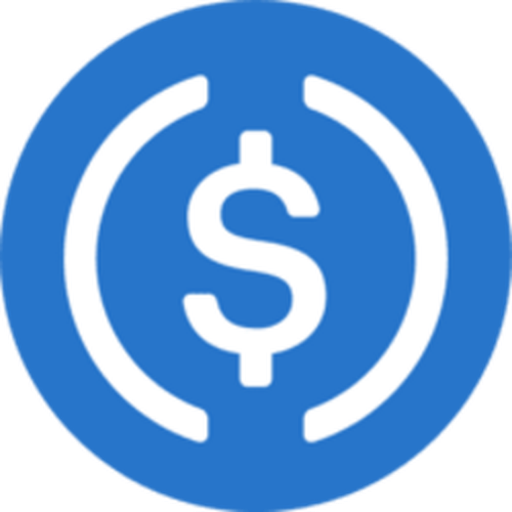USDC vs Cronos – Price, Market Cap & Performance Compared
Which coin performs better – USDC or Cronos?
We compare the current price (0.99971 $ vs 0.20051 $), market cap (74 153 765 385 vs 6 984 245 543) and all-time high (1.17 vs 0.96541).
Find out which one stands out right now!
USDC is currently trading at 0.99971 $, while Cronos stands at 0.20051 $. These cryptocurrencies differ not only in price but also in market presence.
The market cap of USDC is around 74 153 765 385, and Cronos has about 6 984 245 543. Their respective all-time highs are 1.17 for USDC and 0.96541 for Cronos.
Daily trading volume and the 24h price change (-0.00009 % vs -2.74119 %) also offer key insights.
Compare all metrics now and see which coin fits your investment strategy best!
USDC
USD Coin (USDC) is a stablecoin that is pegged to the US dollar, offering a consistent value and reducing the volatility often associated with cryptocurrencies. It provides a crucial bridge between traditional financial systems and digital currency markets, facilitating easy and secure transactions. USDC's foundation on blockchain technology ensures transparency and enhances trust among users and institutions.
more informationCronos
Cronos is a blockchain platform that has been gaining attention in the cryptocurrency space due to its focus on providing seamless interoperability and scalability for decentralized applications. By leveraging its unique consensus mechanisms and fostering a robust ecosystem, Cronos aims to empower developers to create innovative solutions across various industries. As the platform continues to evolve, it holds the potential to significantly impact the way blockchain technology is utilized globally.
more information

|

|
|
|
|
General Information |
|
|---|---|
|
Title
USDC
|
Title
Cronos
|
|
Symbol
usdc
|
Symbol
cro
|
|
Whitepaper
-
|
Whitepaper
|
|
Website
|
Website
|
|
Community
-
|
Community
|
|
Last Updated
2025-09-24 23:29
|
Last Updated
2025-09-24 23:29
|
Price Data |
|
|---|---|
|
Current Price $
0.99971 $
|
Current Price $
0.20051 $
|
|
High 24h
0.99972 $
|
High 24h
0.20866 $
|
|
Low 24h
0.99960 $
|
Low 24h
0.19897 $
|
|
Price Change 24h
0.00000 $
|
Price Change 24h
-0.00565 $
|
|
Price Change % 24h
-0.00009 %
|
Price Change % 24h
-2.74119 %
|
Market Data |
|
|---|---|
|
Market Cap
74 153 765 385
|
Market Cap
6 984 245 543
|
|
Total Volume
10 559 655 699
|
Total Volume
63 578 718
|
|
Market Cap Change 24h
159 815 467
|
Market Cap Change 24h
-206 382 005
|
|
Market Cap Change % 24h
0.21598 %
|
Market Cap Change % 24h
-2.87015 %
|
|
Return on Investment (ROI)
-
|
Return on Investment (ROI)
-
|
Supply and Availability |
|
|---|---|
|
Circulating Supply
74 175 659 818
|
Circulating Supply
34 826 615 504
|
|
Total Supply
74 172 355 958
|
Total Supply
98 026 567 200
|
|
Max Supply
-
|
Max Supply
100 000 000 000
|
Historical Data |
|
|---|---|
|
All Time High (ATH)
1.17
|
All Time High (ATH)
0.96541
|
|
ATH Change %
-14.75232 %
|
ATH Change %
-79.21609 %
|
|
ATH Date
2019-05-08 00:40
|
ATH Date
2021-11-24 15:53
|
|
All Time Low (ATL)
0.87765
|
All Time Low (ATL)
0.01212
|
|
ATL Change %
13.90744 %
|
ATL Change %
1 555.57758 %
|
|
ATL Date
2023-03-11 08:02
|
ATL Date
2019-02-08 00:00
|
USDC
Understanding USDC: A Stablecoin in the Volatile Crypto World
USDC, or USD Coin, is a prominent stablecoin in the cryptocurrency market. Issued by Circle and backed by fully reserved assets, USDC is designed to maintain a 1:1 value ratio with the US Dollar, making it a reliable digital dollar. The stablecoin ecosystem plays a crucial role in the broader cryptocurrency industry by providing a less volatile alternative to traditional cryptocurrencies like Bitcoin and Ethereum.
The Evolution of USDC
Launched in 2018, USDC was developed as part of a collaboration between Circle and Coinbase, two major forces in the cryptocurrency space. Since its inception, USDC has seen significant growth and adoption, becoming one of the leading stablecoins alongside Tether (USDT) and Binance USD (BUSD). While its all-time high reached $1.17 in May 2019, this was more of an anomalous spike that reinforced the need for rigorous controls to maintain stability around its intended $1 peg.
Pros of Using USDC
One of the primary advantages of USDC is its transparency and regulatory compliance. Circle, the company behind USDC, undergoes regular audits and publishes monthly attestations of its reserves, ensuring users that each USDC token is truly backed by a dollar or dollar-equivalent asset held in reserve. This transparency fosters trust and helps mitigate the volatility that plagues much of the crypto market.
Furthermore, USDC serves as a bridge between traditional finance and the blockchain world. It's used widely in Defi applications, allowing decentralized lending, borrowing, and trading while maintaining value stability. Additionally, USDC's integration into various wallets and exchanges worldwide adds to its utility and liquidity.
Cons of USDC
Despite its advantages, USDC is not without its drawbacks. One of the critical concerns involves regulatory risks, as stricter regulations on stablecoins could impact its future operations. Also, as a centralized stablecoin, USDC is subject to censorship concerns, where accounts can be frozen, diverging from the decentralized ethos that underlies most cryptocurrencies.
Another drawback is that, unlike decentralized alternatives, USDC requires a level of trust in the issuer, Circle. Any potential mismanagement or economic instability affecting Circle could, in theory, impact its ability to maintain the 1:1 peg, a risk inherent to any centralized stablecoin.
Past Performance and Market Impact
USDC has generally maintained its peg effectively, with minor fluctuations typically remaining within a tight range around $1. Its stability has been pivotal during periods of crypto market volatility, where it serves as a safe haven for investors looking to escape market downturns without exiting the crypto ecosystem.
In terms of market cap, USDC has experienced exponential growth, driven by increased adoption in the decentralized finance (Defi) space and demand for stable trading pairs. Despite being eclipsed by Tether (USDT) in terms of market share, USDC's reputation for transparency gives it a competitive edge.
Future Outlook for USDC
Looking ahead, USDC's future appears promising but laden with challenges. The growing scrutiny from regulators worldwide could result in regulatory changes impacting its operations. However, Circle's proactive approach to compliance and regulation may shield USDC from adverse outcomes.
The stablecoin's role in facilitating seamless transactions and enabling innovative financial products in the Defi space will likely continue to drive its utility and adoption. Moreover, as traditional financial institutions begin to explore blockchain technology, USDC could play a critical role in bridging the two worlds.
In summary, USDC's stability, transparency, and integration with both traditional and decentralized finance systems position it as a key player in the ongoing evolution of digital finance. However, navigating regulatory landscapes and maintaining trust will be crucial for its sustained success.
Cronos
Understanding Cronos: An Emerging Player in the Crypto Space
Cronos, known by its symbol CRO, has been gaining attention in the cryptocurrency market due to its performance and unique advantages. While not among the oldest coins on the market, its consistent development and strategic partnerships have made it a noteworthy contender. This article will dive into the evolution of Cronos, its potential benefits and drawbacks, and its outlook for the future.
The Journey of Cronos: From Inception to Present
Launched as part of the Crypto.com ecosystem, Cronos was initially aimed at accelerating the global adoption of cryptocurrencies. Throughout its history, Cronos has experienced significant price fluctuations. Its all-time high was in November 2021, reaching $0.965407, reflecting a period of explosive growth for the crypto market. Conversely, the all-time low of $0.0121196 was recorded in February 2019, highlighting the volatility inherent in the crypto space.
Since its inception, Cronos has evolved, leveraging the capabilities of the Crypto.com platform, which offers services ranging from a crypto exchange to a rewarding Visa card program. Today, the coin sits at a price of $0.07601, indicating a decline from its ATH, but it remains a significant player in the market with a market cap of over two billion dollars.
Advantages of Investing in Cronos
Cronos presents several compelling benefits for investors and users. Firstly, its integration with Crypto.com provides substantial utility. Users of the Crypto.com platform can earn rewards through staking CRO, payment options, and other incentives, enhancing the coin's practical value.
The Cronos blockchain's scalability and low transaction fees are technical advantages that make it attractive for developers. Its focus on supporting decentralized finance (DeFi) and non-fungible tokens (NFTs) further highlights its commitment to supporting high-demand sectors in blockchain technology.
Potential Drawbacks to Consider
Like any cryptocurrency, Cronos carries risks. Its price volatility can lead to significant fluctuations in value, posing risks for investors not prepared to weather the crypto market's inherent ups and downs. Furthermore, the competition in the DeFi and NFT space is fierce, with several other projects vying for dominance.
Additionally, as Cronos is tied closely with the success of Crypto.com, any setbacks or controversies involving the larger platform could negatively impact the coin's performance.
Future Prospects for Cronos
Looking ahead, the future of Cronos will largely depend on the continued growth of the Crypto.com ecosystem and its ability to innovate within the blockchain space. The team's focus on expanding their platform's reach and utility could drive demand for CRO.
Moreover, as global interest in blockchain technology and cryptocurrencies continues to grow, especially in DeFi and NFTs, Cronos is positioned to capitalize on these trends due to its technical infrastructure and strategic marketing initiatives.
Conclusion
Cronos represents a promising investment in the cryptocurrency market, particularly for those engaged in the Crypto.com ecosystem. While it offers several benefits such as utility, scalability, and a growing user base, potential investors should remain aware of the risks and market volatility. The coin's future will likely be bright if it continues to innovate and align with emerging trends in the blockchain industry.

